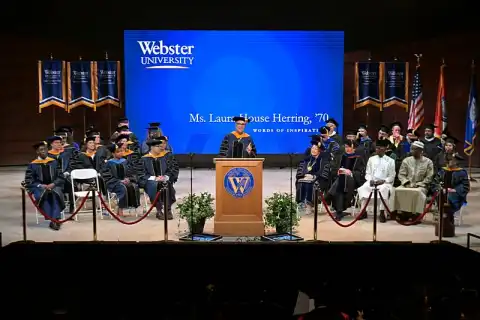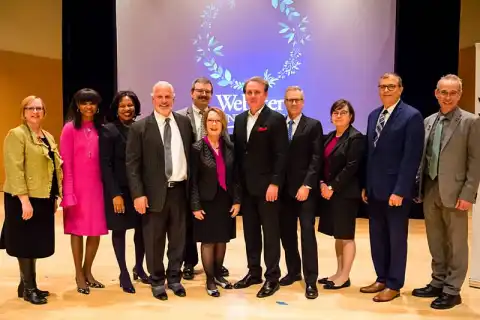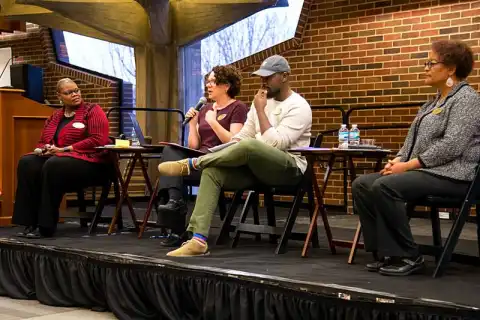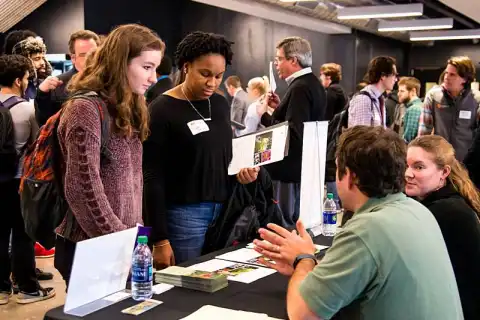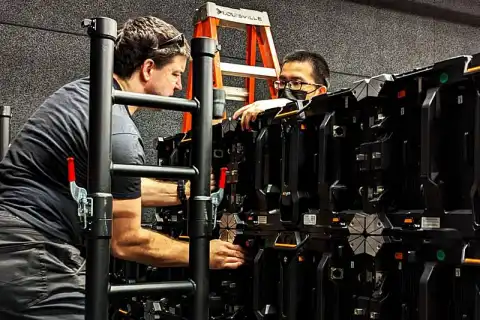Bachelor of Arts - Art History and Criticism
- 4 years
- Duration
- 32,390 USD/year
- Price
- Rolling admission
- Start
- Rolling admission
- Deadline
- Bachelor
- Degree
- Campus
- Format
- St. Louis / USA
- Location
- Webster University
- School
Program description
The study of art as a historical document is the focus of art history, which is both empirical and humanistic in nature.
It is important to understand the historical context of artworks in order to evaluate, analyze, and interpret their aesthetic value.
This may be done by looking at the materials and techniques used to create them, as well as their date and location.
The field's eclecticism supports interdisciplinary approaches as well as awareness of and experiences in other cultures outside of the United States.
Program structure
Main modules
- Creative Strategies
- Observational Drawing
- Materials and Maing
- Current Art
- Intercultural History of Art
- Senior Thesis
A minimum of 8 modules must be chosen from the following:
- Greek and Roman Art
- Early Renaissance Art
- High and Late Renaissance Art
- Northern Renaissance Art
- Baroque Art
- Nineteenth-Century Art
- Modern Art
- Contemporary Art I: Late-Twentieth-Century Art
- Contemporary Art II: Twenty-First-Century Art
- Topics in Art History
- Cultural Organizations: Structure and Theory
- Art Theory and Criticism
- Philosophy and Art
Price
Fee for two semester (1 year education) is 32390.00 USD for international students.
This list does not include all fees charged by Webster University.
- Graduation fee - $130
- Student activity fee (St. Louis campus, full‐time flat fee students only, per semester)- $150
- Matriculation fee (St. Louis campus, full‐time students, one‐time)- $150
- Resident student activity fee (per semester)- $80
- Re‐admission fee - $40
- Deferred payment fee (per semester)- $40
- Transcript fee - $20
Some classes may include laboratory fees and may vary per class
Requirements for applicants
- An official high school transcript from the last high school attended or from a home school program. All transcripts issued in a language other than English must be accompanied by a certified English translation.
- Official transcripts from all college-level credit courses obtained while in high school.
- Webster University is a test-optional university.
Furthermore, the Office of Admission, when it deems necessary, reserves the right to request the following additional documents when considering a student for admission:
- A résumé of school and community activities, including offices held and awards received.
- One letter of recommendation.
English Proficiency for international student applicants:
Successfully meeting the requirements for one of the following tests within the last two years:
- TOEFL: iBT: 80
- TOEFL: pBT: 550
- IELTS: Academic: 6.0
- Duolingo: 120
- Pearson: 53
- Cambridge Academic English: 169
- Password: 6.0
- GTEC: 1201
- iTEP: 3.7
- SAT's English-based Reading and Writing Score: 450
- ACT composite score: 23
Instead of submitting English Proficiency Scores from Duolingo, TOEFL, or IELTS, students can demonstrate English proficiency by:
- Successfully complete at least one academic year of high school or college-level coursework in English by a regionally accredited U.S. college or university (Note: ESL coursework does not apply to this exception) within the past two years.
- Successfully complete ELS Language Center's “English for Academic Purposes” or ELS Language Center “Level 112.” Students will need to show the Graduation Certificate for either of the classes.
- Successfully complete the University of Central Florida's Center for Multilingual Multicultural Studies (CMMS) Intensive English Program. Students will need to show the completion certificate.
About the university
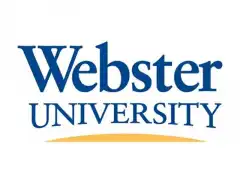
The extraordinary history of Webster University, which was founded in 1915 by the Loretto Sisters with the goal of making higher education more accessible to all, can be traced back to that same commitment to racial equality.
The growing interconnectedness of our world has prompted us to spend the last four decades creating a global network of engaged academics and alumni who work together to create meaningful connections in their local communities and beyond.
Our Core Values
- Students - keeping small classes, personal connections with professors and staff, and a focus on the needs of individual students is one way to ensure a truly global education for every student.
- Learning - for this purpose, we aim to develop educational programs that combine theory and practice; provide an international perspective; encourage creativity; and foster a lifelong desire to learn.
- Diversity and Inclusion - Instilling in students an appreciation for diversity and an understanding of their own and others' values by creating an environment that is accessible to individuals of diverse cultures, ages, and socioeconomic backgrounds.
- Global Citizenship - in order to educate and empower a wide range of people from all walks of life, as well as to protect the environment and strengthen the communities we serve.
Campuses and Locations
No matter where you live or work, our undergraduate and graduate programs are here to help you reach your professional and personal goals. We have campuses in USA, China, Greece, Austria, Switzerland and others.

